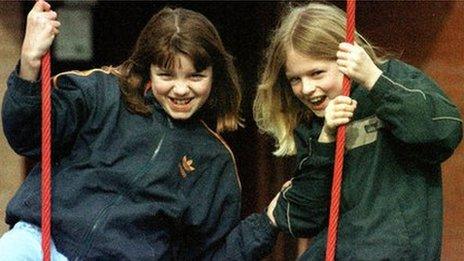Soham murders: Papers reveal Tony Blair resisted public inquiry into deaths
- Published
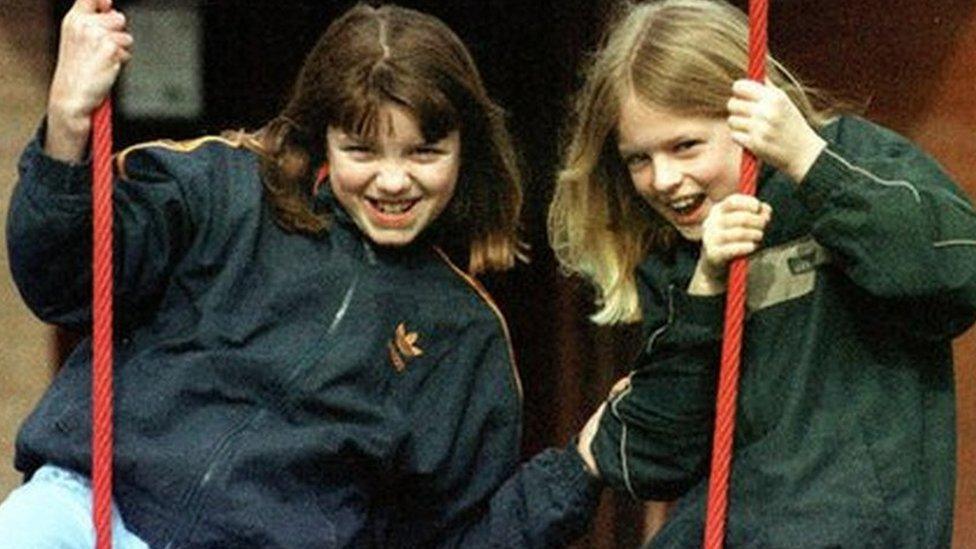
Schoolgirls Jessica Chapman and Holly Wells were murdered in 2002
Tony Blair resisted calls for a public inquiry following the murders of two schoolgirls in Soham, according to newly-released files.
Ten-year-olds Holly Wells and Jessica Chapman were murdered by school caretaker Ian Huntley in 2002.
After his arrest, it emerged Huntley had been able to work with children despite being the subject of rape and sexual assault complaints.
A subsequent inquiry led to criminal checks on anyone working with children.
The deaths of the two schoolgirls in the quiet Cambridgeshire village on 4 August 2002 shocked the country.
Their bodies were found in a ditch near an air base in Lakenheath, Suffolk, two weeks after they disappeared, sparking a major search operation.
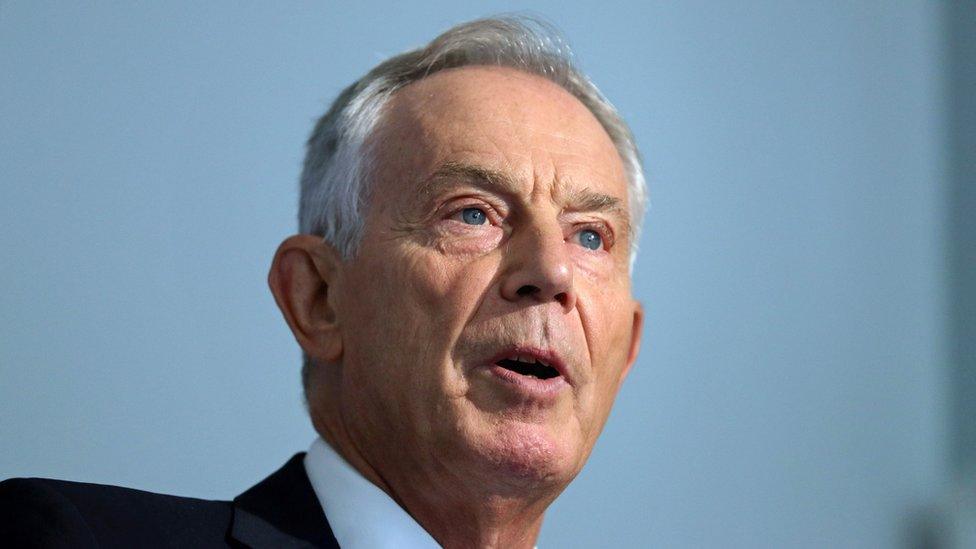
Tony Blair wanted a "sensible... eminent" person to hold a "short, quick" inquiry behind closed doors, papers reveal
Huntley, who was a caretaker at Soham Village College, was convicted of the murder of both girls on 17 December 2003. He is currently serving a life sentence with a minimum term of 40 years.
His girlfriend Maxine Carr, a teaching assistant at the girls' primary school, was also jailed in 2003 after being found guilty of conspiring to pervert the course of justice.
'Intelligence'
Huntley had been able to get a job working with children, despite having been the subject of a series of complaints of rape and other sexual offences made to police in Humberside, where he had worked before.
The-then home secretary David Blunkett wanted to order a public inquiry after HM Inspector of Constabulary said it was unclear if Cambridgeshire Police had ever asked if there was any intelligence on Huntley - while Humberside's data was so poor the result of any check would have been negative.
Papers released by the National Archives, external showed Mr Blair's initial response was that any inquiry should take place behind closed doors.
"I am wholly against a full, overt public inquiry. Why not get a sensible person reasonably eminent, to do it on a short and quick basis," he wrote.
But under pressure from Mr Blunkett, Mr Blair agreed that Sir Michael Bichard, a former senior civil servant, should be able to conduct hearings in public.
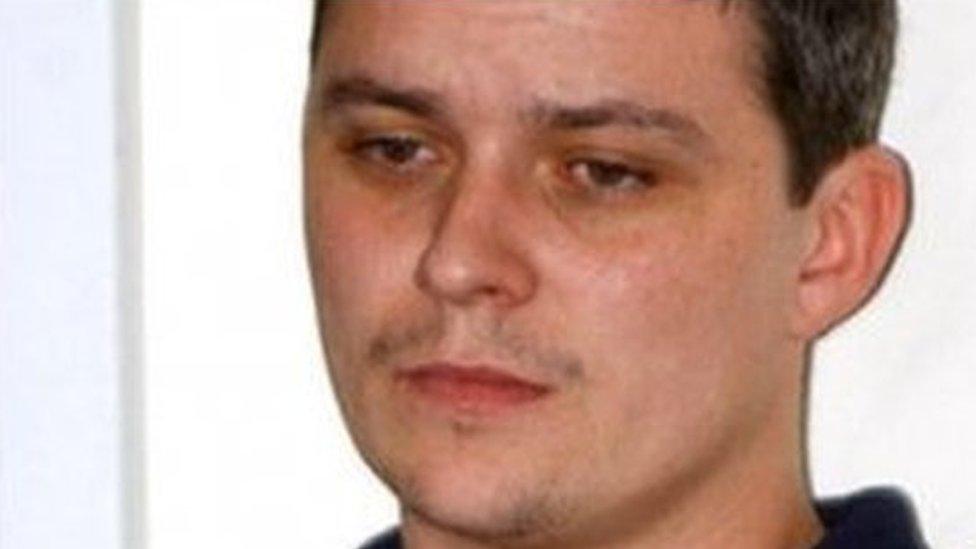
A national police database was recommended after police failings in the Ian Huntley case
The subsequent Bichard Inquiry Report, external heavily criticised police failings and led to the creation of the Independent Safeguarding Authority, now a part of the Disclosure and Barring Service, external.
A key recommendation was a Police National Database, to ensure convicts and suspects could not hide across county borders.
It was launched in 2011 to combine intelligences from 43 forces in England and Wales, and data from 150 computer systems.
The creation of the database was described by the parents of Holly and Jessica as a "defining moment" to mark the passing of their daughters.
The case also led to the strengthening of legislation to protect children, including compulsory criminal background checks on people who apply to work with them.

Follow East of England news on Facebook, external, Instagram, external and X, external. Got a story? Email eastofenglandnews@bbc.co.uk or WhatsApp 0800 169 1830
Related topics
- Published4 August 2022
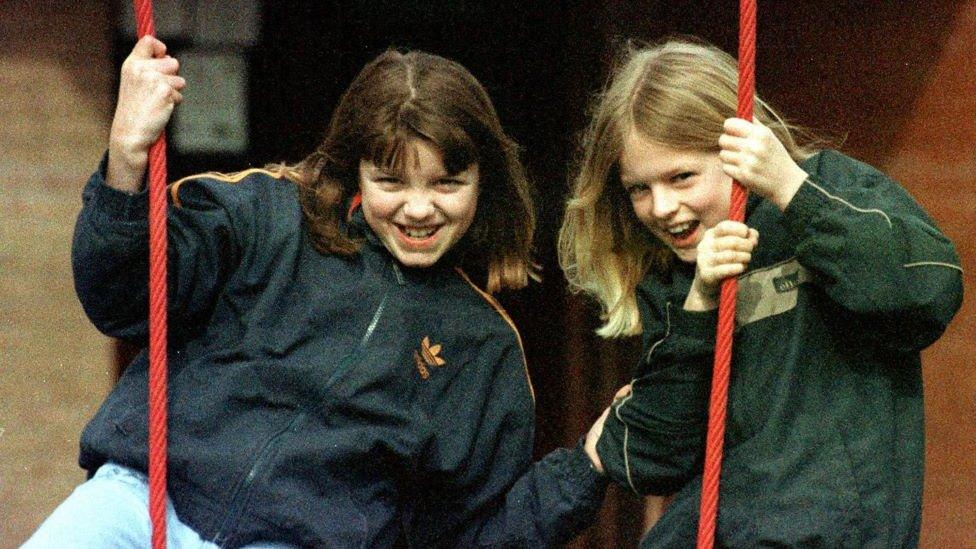
- Published15 August 2012
